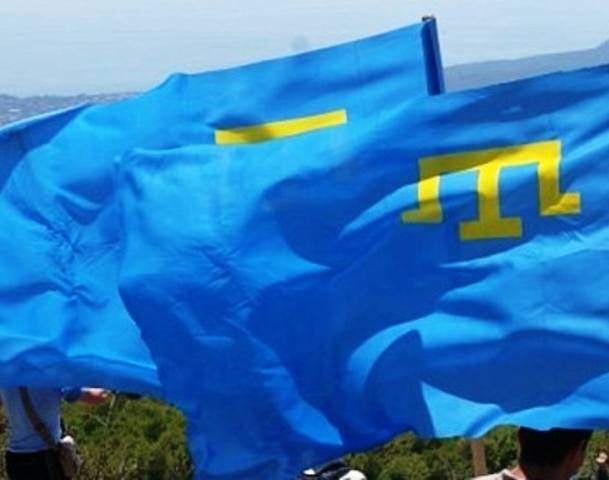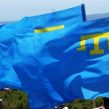
Xenophobia and Desire for Monopoly of Power Dominate Kyiv’s New Approach to Crimea
Publication: Eurasia Daily Monitor Volume: 10 Issue: 114
By:

When writing about xenophobia and racism, Western scholarly and media writing about Ukraine inevitably focuses on Western Ukraine and the rise of the Svoboda nationalist party. But in fact, Council of Europe reports, the United States’ diplomatic cables from Kyiv (released by Wikileaks), annual reports on human rights by the US State Department and Ukrainian sociological polls point to the Crimea as the most xenophobic region of Ukraine (see EDM, June 11, 2012).
Crimean Tatars make up approximately 15 percent of the peninsula’s population. But, the added presence of the xenophobic Russian Orthodox Church, local Russian nationalists, Crimean and Russian Cossacks, and the local popularity of Communists creates a combustible mix in Crimea (Taras Kuzio, The Crimea: Europe’s Next Flashpoint?, Jamestown Foundation, November 11, 2010).
Under Ukraine’s first three democratically elected presidents, relations between the Crimean Tatar community and Kyiv were relatively good. This dramatically changed since 2006, when the Party of Regions entered into a local alliance with Crimean Russian nationalists, and 2010 when Viktor Yanukovych was elected president. For the 2006 Crimean elections, a cable from the US Embassy in Kyiv reported Russian political technologist Konstantin Zatulin had brokered a coalition of the Party of Regions with the Za Soyuz (For Union) party, Slavic Party and two smaller Russian nationalist political parties in Crimea (https://wikileaks.org/cable/2006/12/06KYIV4489.html). This alliance not only brought Crimean Russian nationalists out of their decade-long marginalization but led to an ideological alliance over Georgia, when the local Crimean parliament supported the independence of South Ossetia and Abkhazia (see EDM, September 2, 2008), and since 2010 in xenophobic, anti-Tatar policies.
Anatoli Mogilev’s November 2011 appointment as prime minister of the Autonomous Republic of Crimea added fuel to this fire as he had earned a particularly anti-Tatar reputation while serving as Crimean chief of police. On January 24, 2008 he published a rabidly anti-Tatar editorial in Krymskaya Pravda (reproduced at https://blogs.pravda.com.ua/authors/kuzyo/4edabbffaa116/) that claimed: “A conflict along the lines of Kosovo is brewing in the Crimea.” Crimean Tatars also blame Mogilev for a violent inter-ethnic confrontation that occurred on the Ai-Petri plateau in Crimea on November 7, 2007 (Kyiv Post, March 18).
Soon after being appointed Crimean prime minister, Mogilev said, “The Mejlis [the executive body representing the Crimean Tatar community] is a structure outside the legal framework in Ukraine. I am ready to cooperate with [ethnic Crimean Tatar politicians] Mustafa Dzemiliev and member of the Crimean parliament Refat Chubaro. However, let us get rid of this word ‘Mejlis.’” The Kharkiv Human Rights Protection Group replied, “The latest remarks […] are in no way out of character” (https://khpg.org/en/index.php?do=print&id=1363475844).
After Yanukovych was elected president, relations soured quickly when, on August 26, 2010, he issued a decree sidelining the Crimean Tatar Mejlis (which runs day-to-day affairs) and the unofficial Crimean Tatar parliament—the Kurultai (https://president.gov.ua/documents/12259.html). The Council of Representatives of the Crimean Tatars attached to the President of Ukraine had been operational since 1999, and the Kurultai had delegated representatives to it. Yanukovych’s decree instead empowered the president to select the members of this consultative body. Yanukovych has selected mainly individuals loyal to the ruling party, including leaders of the banned Party of Muslims and the non-governmental organization Sebat, which are completely unaffiliated with the Mejlis or the Kurultai. Dzemilyev said that Yanukovych and Mogilev seek to “destroy the Mejlis” (https://news.liga.net/interview/politics/826508-dzhemilev_yanukovich_i_ego_marionetki_khotyat_unichtozhit_medzhlis.htm).
Furthermore, Crimean Tatar leaders have protested what they describe as the “ethnic cleansing” of their ethnic group from official government positions that began in late 2012. In February 2013, deputy head of the Mejlis, Remzi Ilyasov, was released from the position of head of the Permanent Commission of the Crimean Parliament on International Relations and Problems of Deported Citizens. Like under the Soviet Union, the ruling authorities understand the state to be synonymous with the ruling party; there is no independent civil service and opposition politicians are given no access to higher office. Crimean Tatars have supported the Rukh party (1998), Our Ukraine (2002, 2006 and 2007) and Batkivshchina (2012). Of the 1,100 civil servants in Crimea, only 7 percent are Tatars (https://www.pravda.com.ua/articles/2013/05/17/6989171/).
While no mainstream Ukrainian political force denies the Holocaust of European Jews in World War II, three political forces (Party of Regions, Communists [KPU] and Crimean Russian nationalists) downplay, justify or deny the forced deportation of Crimean Tatars in 1944 by Soviet authorities. Of the deported Crimean Tatars, 46 percent died en route to Central Asia in 1944—four times more than the Tatars who died in combat during World War II. The 30,000 Crimean Tatars who returned home from the Soviet armed forces were also deported (see Soviet documents https://www.istpravda.com.ua/articles/2012/05/17/85887/; https://www.istpravda.com.ua/short/2012/05/16/85705/).
The question of the 1944 Crimean deportation has particularly exacerbated tensions on the peninsula between the Crimean Tatar community and the authorities. In May 2012, on the anniversary of the 1944 ethnic cleansing, Crimea’s Prime Minister Mogilev refused to jointly commemorate the event, and a resolution adopted by 15,000 participants of a memorial ceremony in Simferopol called for his resignation. The resolution said Mogilev is “sowing dissent among Tatars and inflaming tension in society between nationalities and peoples with different political views” (https://www.pravda.com.ua/news/2013/05/18/6990170/).
Relations have also been strained by the authorities’ refusal to support the re-naming of Simferopol airport after Amet Han Sultan, a famous Crimean Tatar who was a Soviet World War II pilot and is the central figure in the new film Haytarma (Return) about the 1944 Crimean Tatar deportation (see EDM, June 5; https://ukrainianweek.com/Culture/81011). Moreover, the Party of Regions and the KPU in the Ukrainian parliament refuse to support a new bill “On the revival of rights of individuals deported for national reasons.”
The Party of Regions has stood with the KPU and Russian nationalists over the highly controversial issue. On the May 2012 anniversary of the 1944 ethnic cleansing, KPU leader Piotr Symonenko claimed the deportation was justified because the Tatars’ “massive collaboration” with the Nazis would have led to civil war in the Crimea (https://www.pravda.com.ua/news/2012/05/16/6964607/). Symonenko added that the expelled Crimean Tatars received education and employment in Central Asia.
When Russian Consul General to Crimea Vladimir Andreev expressed his support for the Crimean Tatars’ collective guilt as “Nazi collaborators” (see EDM, June 5), Crimea’s Russian nationalists jumped to his defense. Sergei Tsekov, leader of the Russian Community of Crimea and an ally of the Party of Regions since 2006, awarded him the title of “Honorary Citizen” of Crimea. The Consul “adopts a very principled and correct position,” Tsekov said. A Crimean parliamentary deputy from the Russian Unity party, Sergei Shuvaynykov, agreed, saying Consul Andreev had “stated views that are supported by the majority of Russians and Russian-culturally oriented people who live in the Crimea” (https://www.radiosvoboda.org/content/article/24997639.html).
Ukraine’s Crimean region has long suffered from notably strained inter-ethnic relations, but local xenophobic politicians and activists have only received support from central authorities in Kyiv in 2006–2007 and since 2010 under Prime Minister and then President Yanukovych. Yet it is the emergent union of the Party of Regions, Communists and local Russian nationalists, which justify or deny the ethnic cleansing of Crimean Tatars, that is particularly troubling for the future inter-ethnic harmony on this potentially turbulent Ukrainian peninsula.




